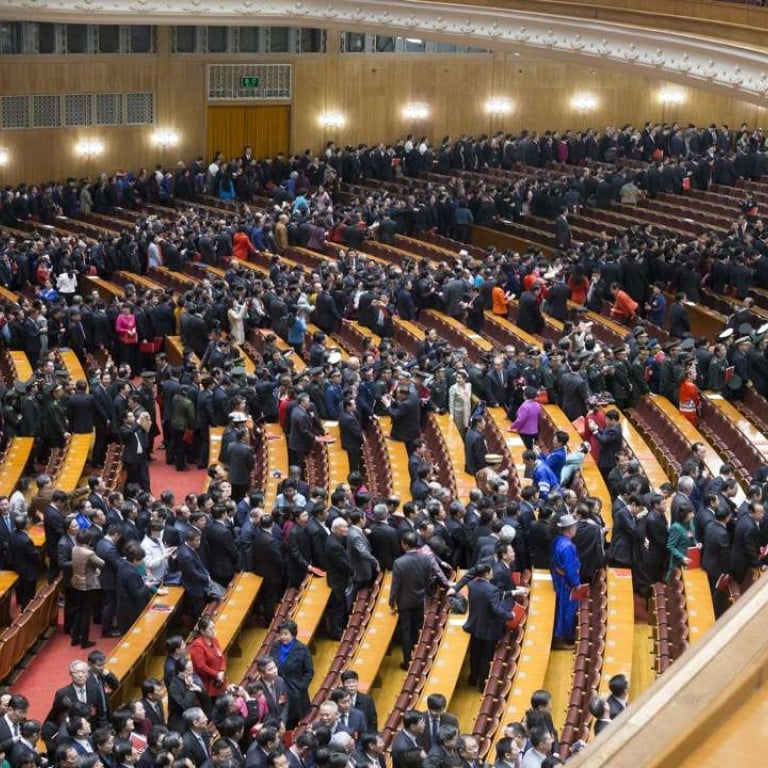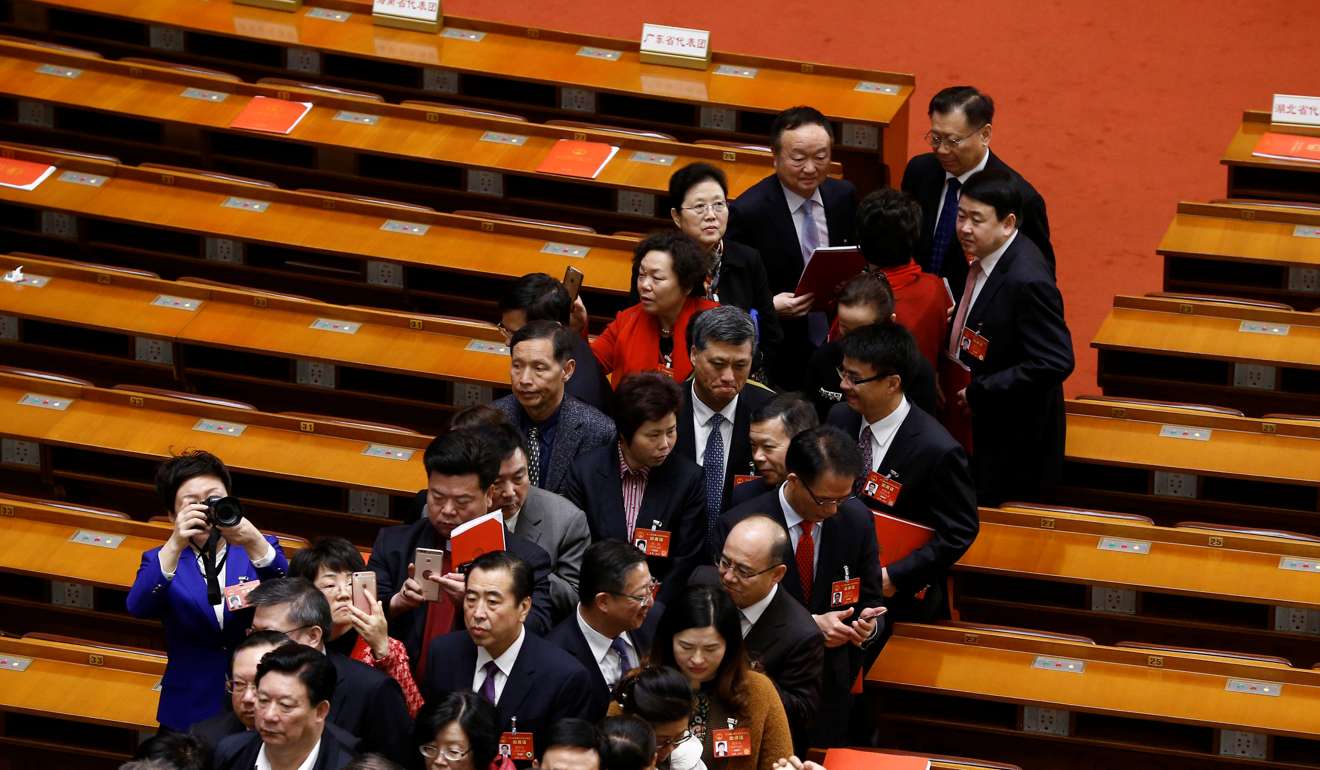
What the big topics that went unmentioned at China’s ‘two sessions’ reveal
Subjects that are avoided or downplayed at annual plenary meetings also important in gauging China’s political direction
While much has been discussed by the about 5,000 officials, lawmakers and political advisers in the two-week annual plenary sessions in Beijing, what hasn’t been mentioned can be equally revealing in gauging China’s politics.
An analyst said the absence of discussions on these matters could underscore how policymakers in Beijing are treading carefully amid uncertainties about the new Donald Trump administration in the United States and the looming reshuffle of the Communist Party leadership late this year.

Around the time of Xiao’s disappearance, Beijing’s top securities regulator Liu Shiyu used strong-worded terms including “financial crocodiles” and “barbarians” to describe those who make fortunes by exploiting loopholes in regulations.
However, except for a statement by central bank governor Zhou Xiaochuan on financial regulation, there was no explicit mention of how China would continue its hunt for the “financial crocodiles”.
In a press conference on Friday, Zhou said “initial agreements” had been reached to reform an interministerial regulatory body. Reporters at the meetings could get no information on the investigation of Xiao, or whether China was targeting other crocodiles.
Another hot topic, an anti-corruption super body to be launched next March, was barely touched upon.
The establishment of the super body, the National Supervisory Commission, was praised by the party as an important political reform that would involve amending the constitution. Yet, with the official launch only a year away, very limited details were made public.
Among the most frequently asked question about the body, and the new supervision law, were whether the restriction of personal freedom of suspected corrupt officials could remain unscrutinized by the law, as has been the case when the party’s internal anti-corruption watchdog investigates officials.
When approached by a South China Morning Post reporter on such issues, Minister of Supervision Yang Xiaodu, a top anti-graft official, said he was only in the lobby to meet old colleagues.
Beijing’s silence over such matters signals that the leadership is facing increasing uncertainty and is making stability its priority for the power reshuffle this fall, said Beijing-based political commentator Zhang Lifan.
“The leaders are facing increasing uncertainties such as Trump’s presidency, ties with North Korea and downward pressure on the economy, and there’s not much they can do in a high-profile fashion,” Zhang said.
“The reform in the supervisory commission could be meeting resistance from non-cooperative bureaucrats and the delegates are usually briefed on what can be said and what cannot.”
Despite ties between Beijing and the Vatican warming, China’s officially sanctioned Catholic community still finds the taboo too strong to break. Catholic priests at the meetings ignored reporters’ questions about the Vatican. Ye Xiaowen, a former director of the State Administration of Religious Affairs, who met delegates from the Vatican, politely rejected all questions to him about the church, saying only that he had retired.
North Korea, the elephant in the room, is still treated as if no problems exist. When asked how the murder of North Korean leader Kim Jong-un’s half brother Kim Jong-nam could overshadow relations between Beijing and Pyongyang, Chen Deming, a former minister of commerce who was responsible for trade zone cooperation with North Korea, dismissed the question by saying the bilateral ties were perfectly normal and he did not know what uncertainties the question was referring to.

